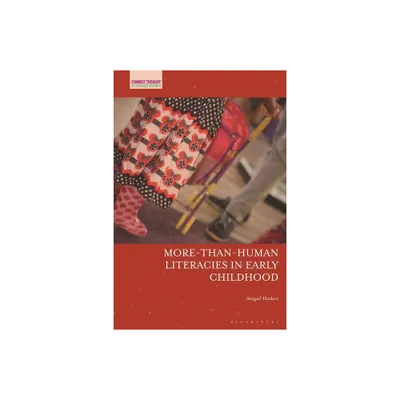Home
More-Than-Human Literacies Early Childhood
Loading Inventory...
Barnes and Noble
More-Than-Human Literacies Early Childhood
Current price: $135.00


Barnes and Noble
More-Than-Human Literacies Early Childhood
Current price: $135.00
Loading Inventory...
Size: Hardcover
*Product Information may vary - to confirm product availability, pricing, and additional information please contact Barnes and Noble
More-Than-Human Literacies in Early Childhood
draws on a long-term ethnographic research into the role of place, materiality and the body in the literacies of young children aged 12-36 months. It builds a picture of how children participate in, or become caught up in, literacies and language in the contexts of their everyday lives.
Throughout the book, recognised understandings of young children are decentred in favour of experiential knowing of parents and communities, body-place knowing and ordinary affects. Abigail Hackett argues that young children's literacies are always more-than-human, involving sounds, gestures and movements between humans and nonhuman places and things. By paying close attention to the more-than-human nature of these literacies, which rely on bodies, places, animals, humans, objects and atmospheres for their ongoingness, a case is made for the decentring of young children.
The book will be of particular interest to researchers looking at feminist-new materialism, posthumanism, affect theory, and critical literacy in early childhood settings.
draws on a long-term ethnographic research into the role of place, materiality and the body in the literacies of young children aged 12-36 months. It builds a picture of how children participate in, or become caught up in, literacies and language in the contexts of their everyday lives.
Throughout the book, recognised understandings of young children are decentred in favour of experiential knowing of parents and communities, body-place knowing and ordinary affects. Abigail Hackett argues that young children's literacies are always more-than-human, involving sounds, gestures and movements between humans and nonhuman places and things. By paying close attention to the more-than-human nature of these literacies, which rely on bodies, places, animals, humans, objects and atmospheres for their ongoingness, a case is made for the decentring of young children.
The book will be of particular interest to researchers looking at feminist-new materialism, posthumanism, affect theory, and critical literacy in early childhood settings.


















